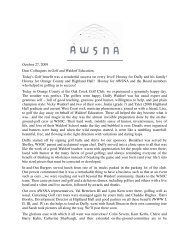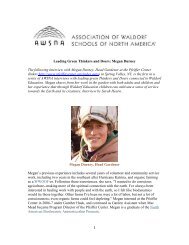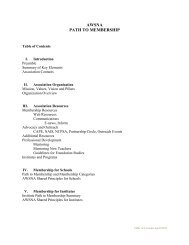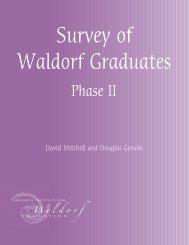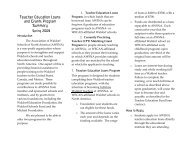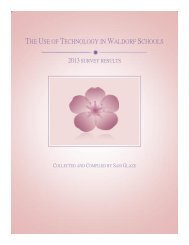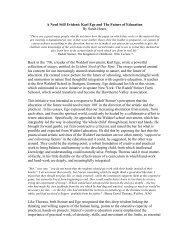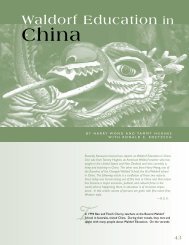David Whyte A Fire Inside - Why Waldorf Works
David Whyte A Fire Inside - Why Waldorf Works
David Whyte A Fire Inside - Why Waldorf Works
Create successful ePaper yourself
Turn your PDF publications into a flip-book with our unique Google optimized e-Paper software.
mirrors and monetary instruments we might have constructed for ourselves in the so-called realworld.It also might be surprising to think that there are just as many forms of courage and creativityassociated with disappearance and doing without; just as many satisfying elements of alivenessassociated with a winter as with spring. This central, core conversation to which we return in eachsucceeding winter is both nourishing and deeply disturbing, it seems heedless of any flimsystructures we may have erected, it seems fiery in that it burns familiar things away and yetprovides another form of warmth emanating from a more nested, interior hearth.In my experience the first necessity of an individual in finding this fiery, core conversation is aradical form of simplification. To get to the core conversation we have to withdraw from the edges.Whatever expenses we have been making at the margins of our lives in terms of emotions,finances or time-based commitment must be brought back to the central conversation that makesthe most sense. Radical simplification often entails a seemingly ruthless withdrawal fromsecondary involvements, it also involves simplifying wants and needs to grant us another form offreedom not necessarily involved with the freedom to buy anything we want at any time.Arguments for indiscriminate buying to revive the economy are circular and lock human beings intoa never ending cycle of buying goods that are non essential, with everyone encouraged to livebeyond their means, to the ultimate dismantling of the natural systems that supply those wants inthe first place. The practice of radical simplification, however, might not mean living in a desireless,enlightened state, but simply catching our desires as close to the centre of our experience aspossible.Practically, we can catch a need for an expensive new sports car early on in the process bybuying a second hand version of the same, we can catch it even earlier, nearer to the center, byrenting one every now and again, without having to go to expense of maintaining it, we can catch itvery close in indeed, by attempting to live out directly the very qualities that underlie the desireitself. Without the prop of the car, we might try to cultivate a certain air of freedom as if the windwas always in our hair. The withdrawal from the literal, over- concretized periphery whereeverything is counterfeiting for something closer in, almost always leaves us dealing in anothermore imaginative currency at the center.Now that our focus is shifting away from the peripheral bubble of promised riches, we are justbeginning to be reminded again of the depths of poverty, both in the developing world and theUnited States where the social safety net for those in difficulty has been worn almost to nothing.But it is exactly this re evaluation of the periphery and the renewed emphasis on what is essentialthat will bring spending back from mere baubles to infrastructure and education, back from foreignadventurism to a coherent approach to the sources of terror; in the United States especially theremust be an attempt at a better health care system, a more cohesive, less poisonous politicalconversation and a renewed relationship with a world in desperate need for it to return to itsfoundational ideals.This new faculty of valuation can be quite disturbing to the way we might have priced andmeasured out our life in the recent, unbalanced, heady times. The road of radical simplificationalmost always leads to the door of the great and unwanted unknown. The door to begin withseems to open on to nothing we at first can recognize. To enter through that door we have tocultivate what Suzuki Roshi called beginner's mind, where we stop having to know and nameeverything in advance and allow ourselves the satisfactions of discovery and revelation. In doingthis we actually start to re mould our identity in the form of the learner and listener.
Learning, listening and radically simplifying as we go we might have a possibility of opening upthat catalytic core where very few elements need combine to create a great deal of new energy. Adecision made from this core has enormous leverage on the outer world where we see, hear, workand have relationships. This internal center appears when the outer peripheries have bankruptedthemselves, fallen and become a loam that we must plough back to enrich the ground. In thedepths of winter under the cold night of wind and stars and shut off from the garden, we look forthose hidden and invisible springs that will uncoil, in the still summer air, each new, yet to beimagined rose.




